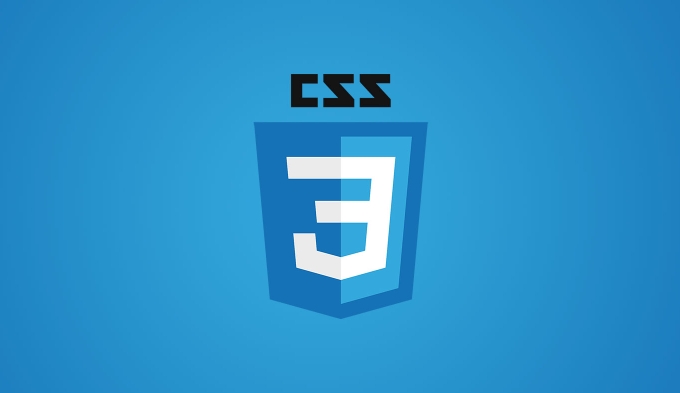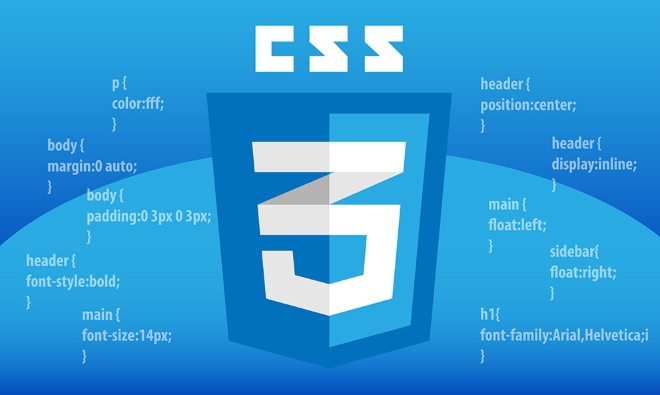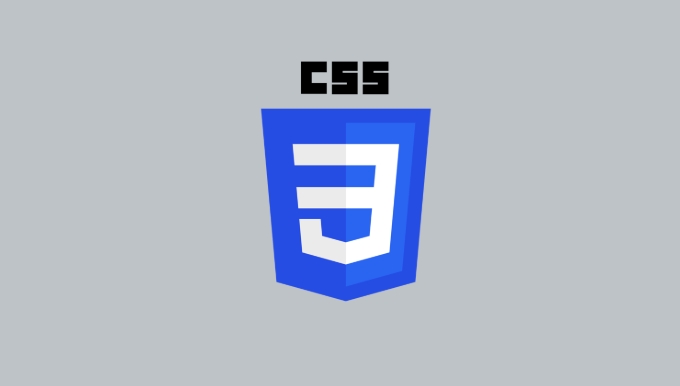To reduce CSS file size, first remove unused CSS code, then compress and minimize CSS, then use efficient CSS selectors and avoid redundant styles, and finally optimize critical CSS to speed up first-screen loading. Useless code can be effectively removed through tools such as PurgeCSS or UnCSS, which can sometimes reduce file size by more than 50%. Minimize it with CSSNano or build tools such as Webpack, and enable Gzip or Brotli compression, which can further reduce the transmission volume; use class selectors instead of complex selectors and multiplexed shared classes to improve performance and maintenance; performance-sensitive sites can also extract and inline key CSS to delay loading of other styles, thereby significantly improving page loading speed.

There's no one-size-fits-all way to reduce CSS file size, but the good news is, there are several straightforward methods that work well together. The key is to focus on efficiency without sacrificing maintenance or design quality.

1. Remove Unused CSS
One of the biggest contributors to bloated CSS files is unused code. This often happens when you're working with large frameworks like Bootstrap or when styles are left behind after redesigns.
- Use tools like PurgeCSS or UnCSS to scan your HTML and remove unused selectors.
- Be cautious with single-page apps or dynamic sites—make sure the tool covers all possible states and routes.
- If you're using a CSS framework, consider importing only the components you actually use, instead of the entire stylesheet.
This step alone can cut file size by 50% or more, especially in larger projects.

2. Minify and Compress Your CSS
Miniving CSS means removing unequissary characters like spaces, comments, and line breaks. It's a standard optimization step and very effective.
- Use tools like CSSNano , PostCSS , or build tools like Webpack , Gulp , or Parcel to automate minification.
- Enable Gzip or Brotli compression on your server. These compression methods can reduce CSS file size by up to 70% before it even hits the browser.
You don't have to do this manually—most modern build setups handle it by default.

3. Use Efficient Selectors and Avoid Redundancy
CSS performance isn't just about file size; it's also about how efficiently the browser can parse and apply styles.
- Avoid overly specific selectors like
div#main-content ul.menu li.active. - Stick to class-based selectors (eg,
.btn-primary) which are both fast and flexible. - Don't repeat styles unnecessarily—use shared classes instead of writing the same styles over and over.
This helps not only with file size but also with rendering performance and maintainability.
4. Optimize for Critical CSS (Advanced but Worth It)
If you're optimizing for speed, especially for initial page load, inlining critical CSS can help.
- Extract and inline only the styles needed for the above-the-fold content.
- Load the rest of the CSS asynchronously or defer it.
- Tools like Critical CSS or Penthouse can help automate this process.
It's a bit more complex and best suited for performance-critical sites, but it makes a real difference in load times.
Basically that's it. Reducing CSS file size is more about smart cleanup and automation than rewriting everything from scratch. Do a little pruning, automate the rest, and your site will load faster without losing style.
The above is the detailed content of How can you reduce file size of CSS?. For more information, please follow other related articles on the PHP Chinese website!

Hot AI Tools

Undress AI Tool
Undress images for free

Undresser.AI Undress
AI-powered app for creating realistic nude photos

AI Clothes Remover
Online AI tool for removing clothes from photos.

Clothoff.io
AI clothes remover

Video Face Swap
Swap faces in any video effortlessly with our completely free AI face swap tool!

Hot Article

Hot Tools

Notepad++7.3.1
Easy-to-use and free code editor

SublimeText3 Chinese version
Chinese version, very easy to use

Zend Studio 13.0.1
Powerful PHP integrated development environment

Dreamweaver CS6
Visual web development tools

SublimeText3 Mac version
God-level code editing software (SublimeText3)
 How to use PHP to build social sharing functions PHP sharing interface integration practice
Jul 25, 2025 pm 08:51 PM
How to use PHP to build social sharing functions PHP sharing interface integration practice
Jul 25, 2025 pm 08:51 PM
The core method of building social sharing functions in PHP is to dynamically generate sharing links that meet the requirements of each platform. 1. First get the current page or specified URL and article information; 2. Use urlencode to encode the parameters; 3. Splice and generate sharing links according to the protocols of each platform; 4. Display links on the front end for users to click and share; 5. Dynamically generate OG tags on the page to optimize sharing content display; 6. Be sure to escape user input to prevent XSS attacks. This method does not require complex authentication, has low maintenance costs, and is suitable for most content sharing needs.
 PHP creates a blog comment system to monetize PHP comment review and anti-brush strategy
Jul 25, 2025 pm 08:27 PM
PHP creates a blog comment system to monetize PHP comment review and anti-brush strategy
Jul 25, 2025 pm 08:27 PM
1. Maximizing the commercial value of the comment system requires combining native advertising precise delivery, user paid value-added services (such as uploading pictures, top-up comments), influence incentive mechanism based on comment quality, and compliance anonymous data insight monetization; 2. The audit strategy should adopt a combination of pre-audit dynamic keyword filtering and user reporting mechanisms, supplemented by comment quality rating to achieve content hierarchical exposure; 3. Anti-brushing requires the construction of multi-layer defense: reCAPTCHAv3 sensorless verification, Honeypot honeypot field recognition robot, IP and timestamp frequency limit prevents watering, and content pattern recognition marks suspicious comments, and continuously iterate to deal with attacks.
 What are common CSS browser inconsistencies?
Jul 26, 2025 am 07:04 AM
What are common CSS browser inconsistencies?
Jul 26, 2025 am 07:04 AM
Different browsers have differences in CSS parsing, resulting in inconsistent display effects, mainly including the default style difference, box model calculation method, Flexbox and Grid layout support level, and inconsistent behavior of certain CSS attributes. 1. The default style processing is inconsistent. The solution is to use CSSReset or Normalize.css to unify the initial style; 2. The box model calculation method of the old version of IE is different. It is recommended to use box-sizing:border-box in a unified manner; 3. Flexbox and Grid perform differently in edge cases or in old versions. More tests and use Autoprefixer; 4. Some CSS attribute behaviors are inconsistent. CanIuse must be consulted and downgraded.
 How to build a PHP Nginx environment with MacOS to configure the combination of Nginx and PHP services
Jul 25, 2025 pm 08:24 PM
How to build a PHP Nginx environment with MacOS to configure the combination of Nginx and PHP services
Jul 25, 2025 pm 08:24 PM
The core role of Homebrew in the construction of Mac environment is to simplify software installation and management. 1. Homebrew automatically handles dependencies and encapsulates complex compilation and installation processes into simple commands; 2. Provides a unified software package ecosystem to ensure the standardization of software installation location and configuration; 3. Integrates service management functions, and can easily start and stop services through brewservices; 4. Convenient software upgrade and maintenance, and improves system security and functionality.
 Describe the `vertical-align` property and its typical use cases
Jul 26, 2025 am 07:35 AM
Describe the `vertical-align` property and its typical use cases
Jul 26, 2025 am 07:35 AM
Thevertical-alignpropertyinCSSalignsinlineortable-cellelementsvertically.1.Itadjustselementslikeimagesorforminputswithintextlinesusingvalueslikebaseline,middle,super,andsub.2.Intablecells,itcontrolscontentalignmentwithtop,middle,orbottomvalues,oftenu
 What is the accent-color property?
Jul 26, 2025 am 09:25 AM
What is the accent-color property?
Jul 26, 2025 am 09:25 AM
accent-color is an attribute used in CSS to customize the highlight colors of form elements such as checkboxes, radio buttons and sliders; 1. It directly changes the default color of the selected state of the form control, such as changing the blue check mark of the checkbox to red; 2. Supported elements include input boxes of type="checkbox", type="radio" and type="range"; 3. Using accent-color can avoid complex custom styles and extra DOM structures, and maintain native accessibility; 4. It is generally supported by modern browsers, and old browsers need to be downgraded; 5. Set accent-col
 How to compile SCSS to CSS?
Jul 27, 2025 am 01:58 AM
How to compile SCSS to CSS?
Jul 27, 2025 am 01:58 AM
InstallDartSassvianpmafterinstallingNode.jsusingnpminstall-gsass.2.CompileSCSStoCSSusingthecommandsassinput.scssoutput.css.3.Usesass--watchinput.scssoutput.csstoauto-compileonsave.4.Watchentirefolderswithsass--watchscss:css.5.Usepartialswith_prefixfo
 How to change text color in CSS?
Jul 27, 2025 am 04:25 AM
How to change text color in CSS?
Jul 27, 2025 am 04:25 AM
To change the text color in CSS, you need to use the color attribute; 1. Use the color attribute to set the text foreground color, supporting color names (such as red), hexadecimal codes (such as #ff0000), RGB values (such as rgb(255,0,0)), HSL values (such as hsl(0,100%,50%)), and RGBA or HSLA with transparency (such as rgba(255,0,0,0.5)); 2. You can apply colors to any element containing text, such as h1 to h6 titles, paragraph p, link a (note the color settings of different states of a:link, a:visited, a:hover, a:active), buttons, div, span, etc.; 3. Most






